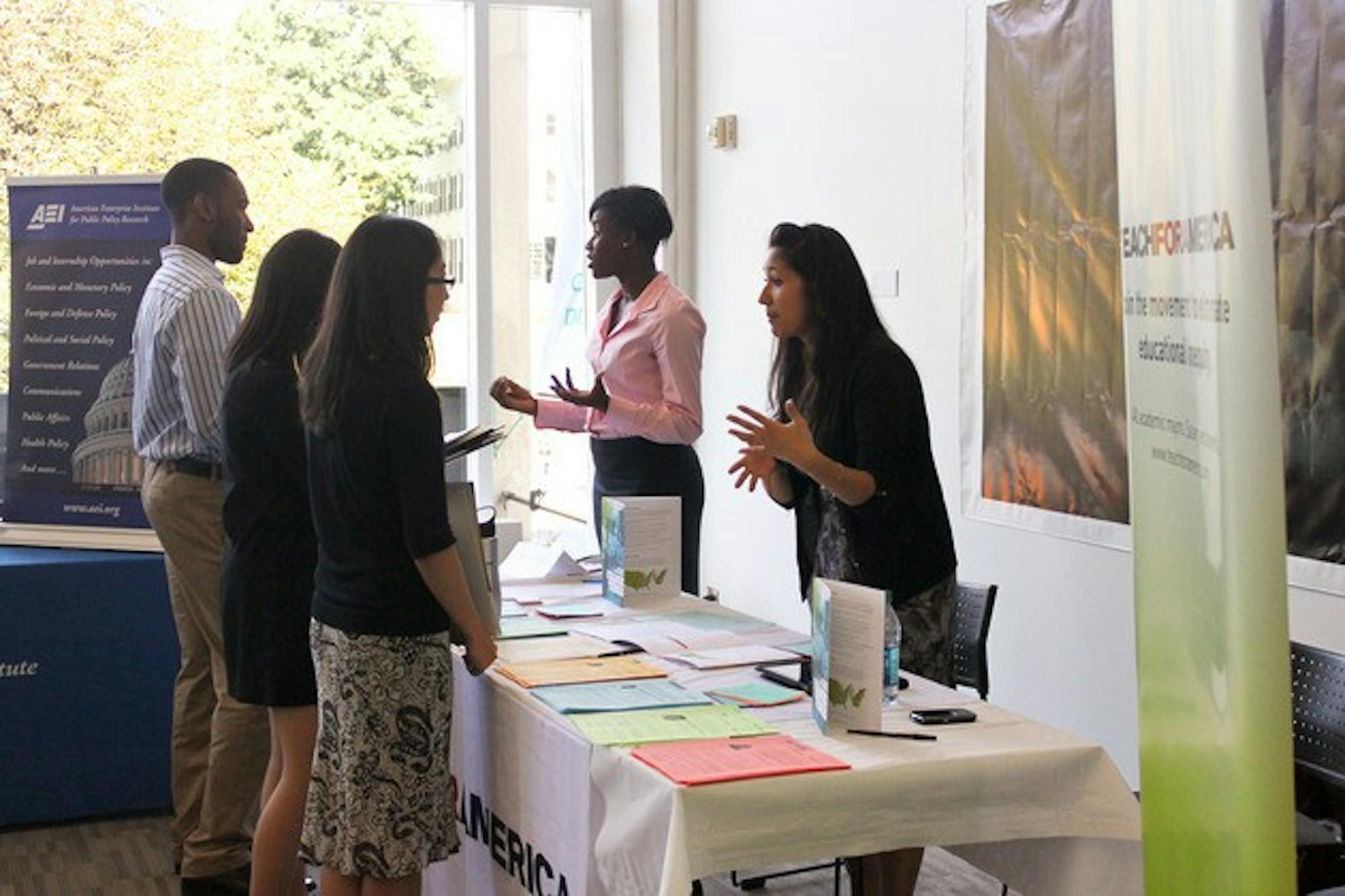Unlike their corporate counterparts, most nonprofit organizations are not equipped with the financial means or staff necessary to recruit students on an individual basis, Wilson said. As a result, they tend to reach out later in the year when students may have already accepted positions via corporate recruiting.
Teach for America and Match Corps, however, attended Career Services' 2012 Employer Connections Fair and actively recruit individual students, according to Wilson.
Because students who are hired by Match must commit one year to public service in the Boston metropolitan region, Recruitment Manager Sara Parr said she looks for candidates with outstanding leadership qualities and experience with volunteer work. Hired recruits, who are assigned six or seven students at the beginning of the year, tutor small groups or individual students daily.
Match Corps takes an active approach to recruiting prospective tutors because the organization looks for students that are committed to issues of education and social justice, Parr said.
Many nonprofit organizations reach out to student populations through professors, student groups and information sessions, according to Wilson. Although some organizations can be fairly selective, they still post information on their websites and on DartBoard the centralized system by which students can view available opportunities and apply online for all students to access, Wilson said.
Teach for America, which also recruits Dartmouth students on an individual basis, hires college graduates to teach for two years in urban and rural public schools, Recruitment Manager Angela Callado said. With a staff that numbers in the thousands across the country, the organization works to eliminate the achievement gap between low-income students and their wealthier peers.
In the past year, 37 Dartmouth students were recruited by the organization, making the College the seventh largest contributor to the program among medium-sized schools, according to a Teach for America press release.
"We look for individuals that have deep passion about ending academic inequity," Callado said. "Students that get involved with us oftentimes didn't originally plan on becoming teachers."
Many Dartmouth juniors and even some sophomores began receiving personal emails from these organizations in the fall, Wilson said.
Applicants for Teach for America and Match Corps are first offered an "informational interview," during which the student can learn about the company, according to Patrick Flynn '13. Students then participate in group interviews, enabling nonprofit representatives to assess applicants' interest in the programs.
Unlike corporate recruiters, nonprofit organizations do not have a quota system or "spots for athletes," alpine skiing captain Evan Diamond '13 said.
The process appeals to some students both because fewer students apply and because "it's set up so you're not really competing against each other," he said.
The presence of nonprofit organizations at employment fairs and Career Services events is not always obvious, Erin Henn '14 said.
While only 23 of the 103 companies that attended the Employer Connections Fair were nonprofit organizations, the large number of students participating in corporate recruiting should not discourage those interested in nonprofit work, Diamond said.
Despite the relative dearth of nonprofit organizations at the fair, Wilson said that should not deter potential applications.
"There are plenty of not-for-profit opportunities all you need to do is seek them out," she said.




